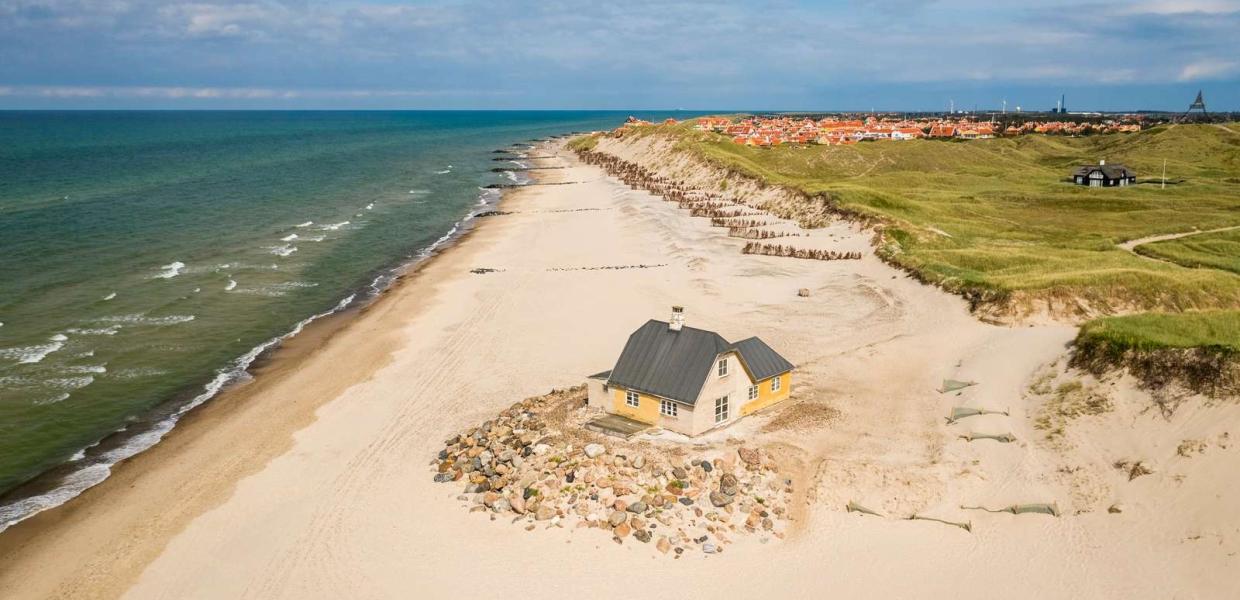
More sustainable accommodation in Northern Jutland
You don’t have to pay extra for sustainability. Make a good choice and live green – you’ll relax more!
Many hotels and accommodations in Northern Jutland have achieved one or more certifications, demonstrating their commitment to making a difference in sustainability.
Green Key is the international eco-label for tourism, awarded to tourism businesses that go the extra mile to protect the environment.
The Nordic Swan Ecolabel is the official Nordic environmental label that monitors and certifies eco-labeled products and services.
The Organic Eating Label is a state-controlled labeling system for eateries, indicating the proportion of purchased food and beverages that are organic. The Organic Eating Label comes in three categories: gold (90-100%), silver (60-90%), and bronze (30-60%).
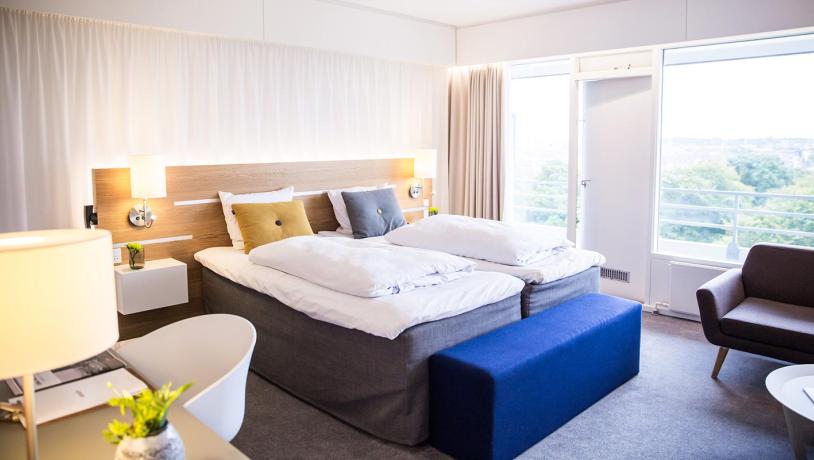
Comwell Hvide Hus Aalborg
Would you like to stay at a hotel that, for the third consecutive year in 2021, won the award for "Denmark's most sustainable hotel chain" and also received the Bronze Organic Eating Label? Then Comwell Hvide Hus Aalborg is a great choice. Enjoy organic ingredients such as locally sourced fish and seafood, homemade bread for breakfast, and meals made from scratch. Up to 60% of the ingredients are organic, and whenever possible, they are supplied by local providers.
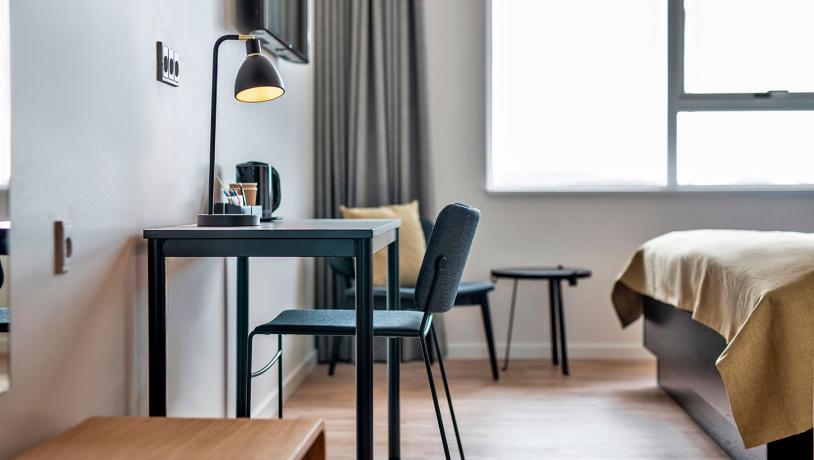
Kompas Hotel Aalborg
Aalborg’s only non-profit hotel, where all profits go directly to the welfare of seafarers and other charitable causes. At Seaman Aalborg, one of the services provided is transporting seafarers from the harbor to the hotel and city, which is done using their new hybrid cars. Kompas Hotel Aalborg is Green Key certified, meeting a wide range of environmental criteria. For example, they strive to use local ingredients, especially in the bar, where it’s important to share the great stories behind products like gin and beer.
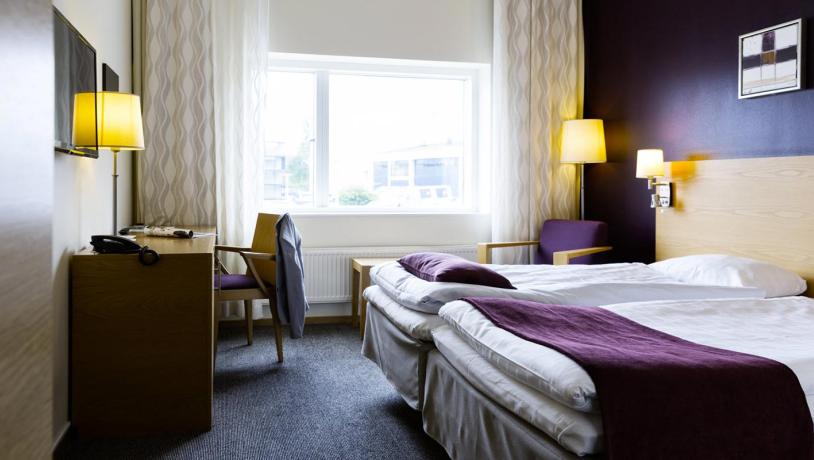
Scandic Aalborg City og Scandic Aalborg Øst
Denmark’s only Swan eco-labeled hotel chain, Scandic, strives to provide a sustainable stay at both Scandic Aalborg City and Scandic Aalborg Øst. The hotels use 30-60% organic ingredients, earning them the Bronze Organic Eating Label. Guests seeking vegan, gluten-free, and lactose-free options can look forward to a great start to the day at the hotel’s breakfast buffet. With an increased focus on local ingredients, the restaurant offers fresh fish or a quality Angus steak, both sourced from Danish producers. The Scandic chain is UTZ-certified, supporting the largest international sustainability program for coffee. This certification ensures environmentally conscious practices without toxic chemicals while providing better economic and social conditions for coffee farmers. As part of the Swan label, Scandic collaborates closely with TooGoodToGo in the fight against food waste.
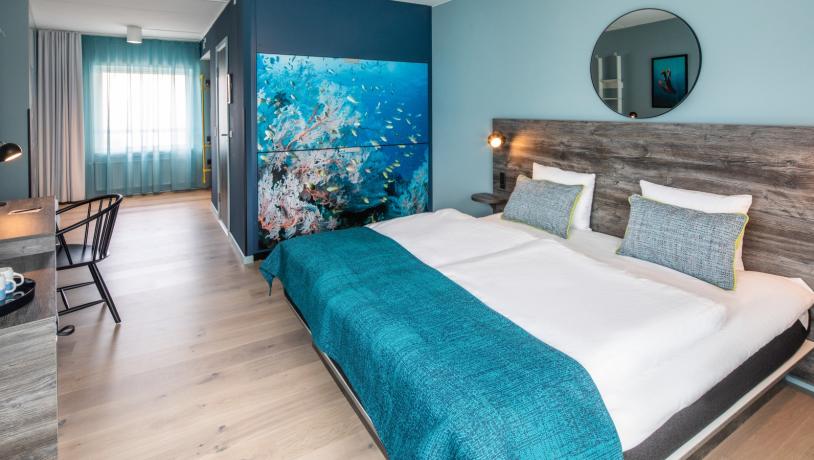
Quality Hotel The Reef
The Reef strives to offer guests a sustainable stay. Using 30-60% organic ingredients, the hotel has earned the Bronze Organic Eating Label. Guests seeking vegan, gluten-free, and lactose-free options can look forward to a great start to their day at the hotel's breakfast buffet. The hotel is also Swan-labeled, and as part of this certification, it works closely with TooGoodToGo in the fight against food waste.
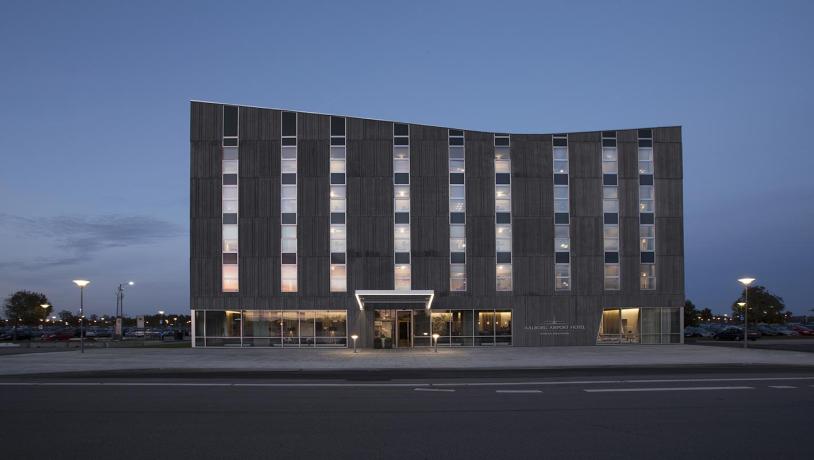
Aalborg Airport Hotel
Aalborg Airport Hotel is Green Key certified, offering facilities that meet high environmental standards. The hotel holds the Bronze Organic Eating Label and sources its products from local and Danish suppliers such as Aalborg Mejeri, Aalborg Chokoladen, and Himmerland, all of which emphasize animal welfare. The hotel’s green partnership with TooGoodToGo supports its goal of fighting food waste. Aalborg Airport Hotel focuses on sustainable procurement, choosing long-term and resource-saving products and furnishings that are both certified and environmentally approved.
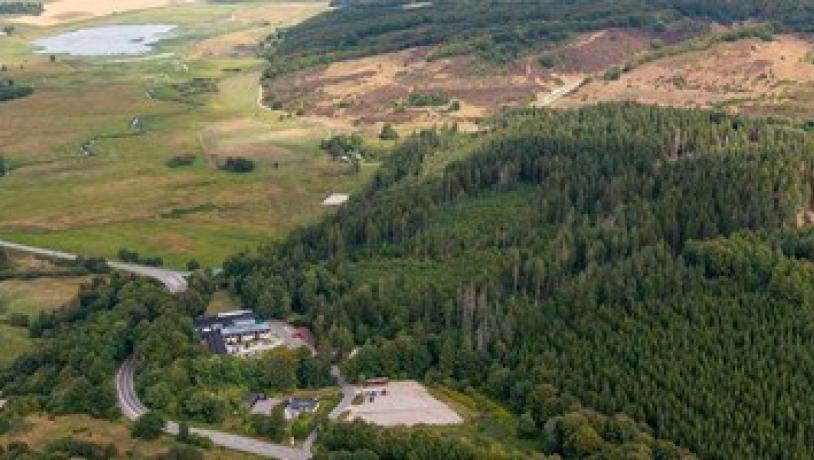
Rold StorKro
Rold Storkro has been Green Key certified since 1998, consistently meeting the requirements for environmental protection over the years. The spring water served is sourced from a depth of 91 meters and maintains a year-round temperature of approximately 7 degrees. Rold Storkro partners with UNICEF, offering guests the opportunity to make a difference by purchasing a liter of water in one of the restaurants, which in turn provides 1,000 liters of clean water to children around the world.
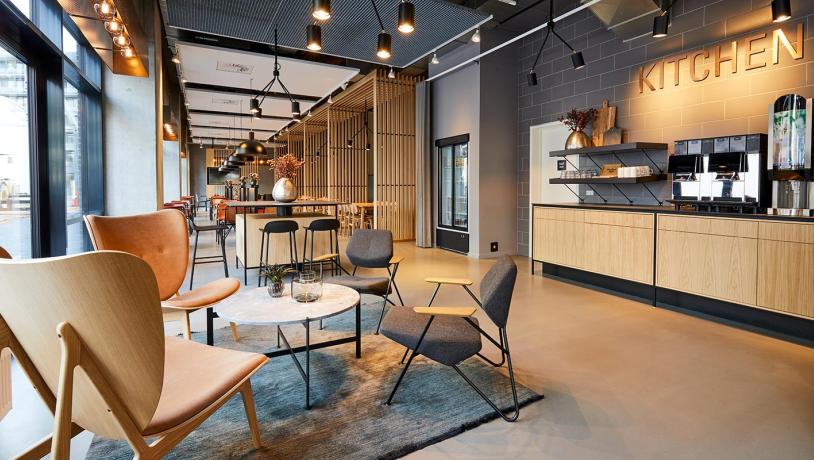
Zleep Hotel Aalborg
Zleep Hotel Aalborg holds the Bronze Organic Eating Label, meaning that 30-60% of the ingredients in their breakfast buffet are organic. The hotel has made an active decision to eliminate plastic bottles and has designed its own water bottle made from 100% bio-based materials, which guests can use during their stay. The bottle is crafted from sugarcane, with a bamboo and recycled wood cap. Additionally, many breakfast items, such as cream cheese, butter, and Nutella, are served in portion sizes to help reduce food waste.
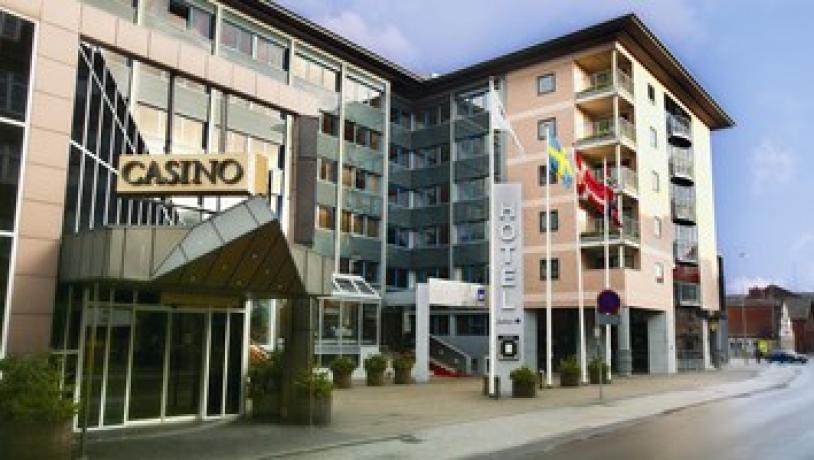
Radisson Blu Limfjord Hotel Aalborg
In 1989, Radisson became part of the first hotel group in the world to adopt an environmental policy. In 2017, Radisson committed to the hotel industry’s 2030 goals set by the Sustainable Hospitality Alliance, a call to action and a shared vision for a sustainable industry with a focus on climate change, water management, human rights, and youth employment. Radisson Blu Limfjord Hotel Aalborg is also Green Key certified.
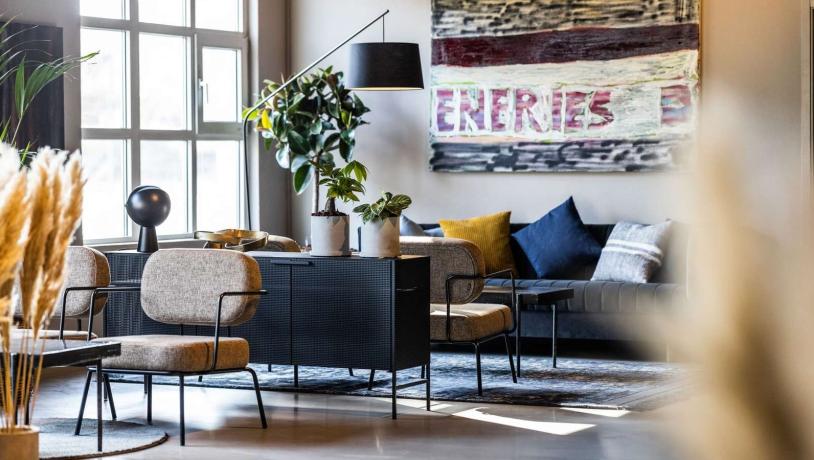
Pier 5 Hotel Aalborg
Pier 5 Hotel is Green Key certified, with a focus on minimizing food waste, organic waste, and by-products. The hotel prioritizes purchasing ingredients organically and locally. Partners are carefully selected to align with Pier 5's values. To reduce overall CO2 emissions, there is a constant emphasis on durable and sustainable solutions for energy and water consumption.
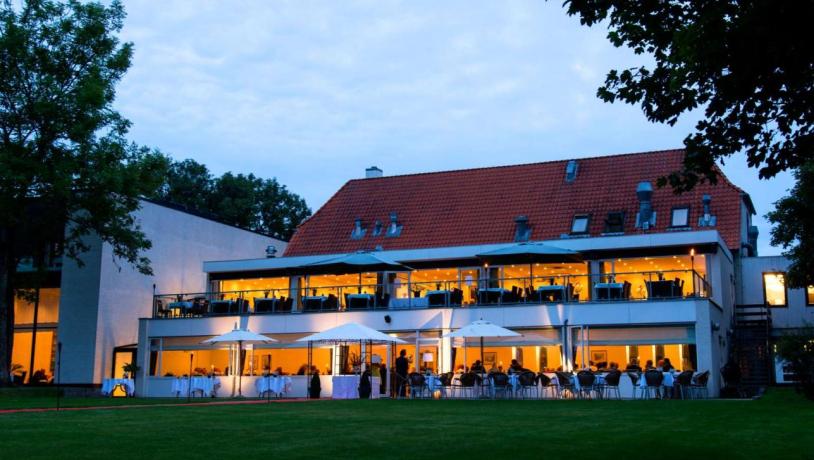
Hotel Scheelsminde
Scheelsminde is Green Key certified. Like Pier 5 Hotel, Scheelsminde is part of the “Familien Bühlmann” group, sharing a similar focus on minimizing food waste, organic waste, and by-products. The hotel prioritizes purchasing ingredients organically and locally. Partners are carefully selected to align with Scheelsminde's values. To reduce overall CO2 emissions, there is a constant emphasis on durable and sustainable solutions for energy and water consumption.
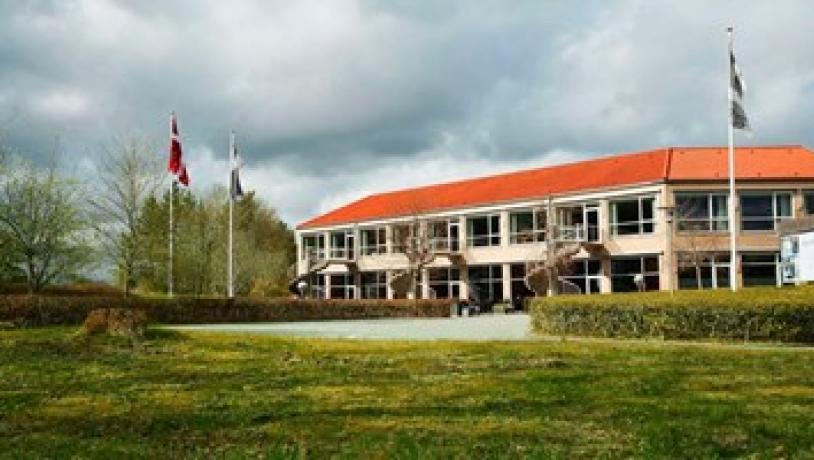
Comwell Rebild Bakker
Comwell Rebild, like Hotel Hvide Hus, is part of the Comwell hotel chain. The hotel is Green Key certified and has received the Bronze Organic Eating Label. Enjoy organic ingredients such as fish and seafood, homemade bread, and meals prepared from scratch. 30-60% of the ingredients are organic and sourced from local suppliers. Ambassadors from each kitchen have completed the Comwell Food Coordinator training in collaboration with the Hotel and Restaurant School, learning to maximize the use of ingredients and thereby reduce food waste.
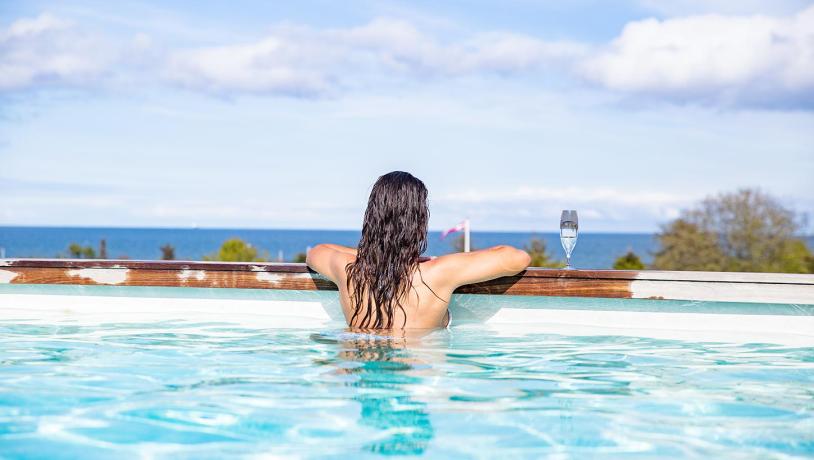
Hotel Viking Spa & Wellness
Years of dedicated environmental efforts have resulted in Hotel Viking becoming part of Green Key. The hotel has focused on significantly improving waste sorting and reducing its CO2 footprint. Additionally, Viking aims to become more energy self-sufficient by installing solar panels on the hotel’s large roof area. Ecology is also a key focus, and in collaboration with their suppliers, the hotel is working towards achieving the Bronze Organic Eating Label.
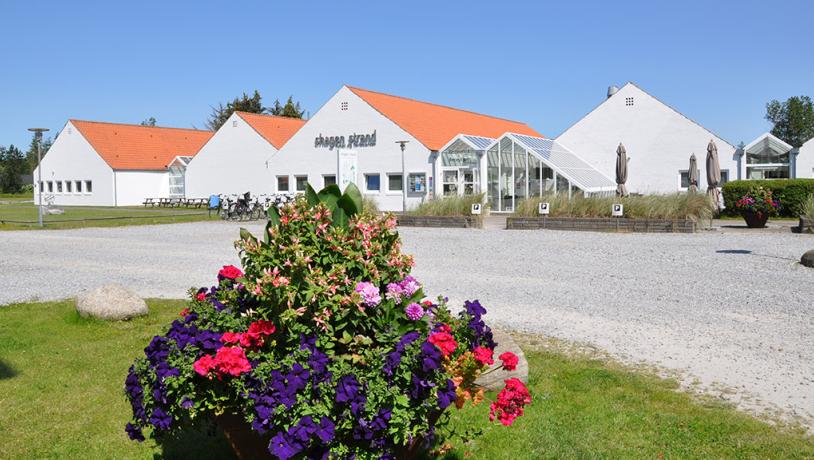
Skagen Strand Hotel og Feriecenter
Skagen Strand is a Green Key certified hotel and holiday center that prioritizes environmental responsibility without compromising comfort and enjoyable experiences. Comprehensive measures have been implemented to conserve heat and energy, waste is sorted, and the use of chemicals is minimized by only using eco-labeled cleaning products. The parking lot is equipped with electric vehicle charging stations, and within the restaurant, there is an increasing focus on organic ingredients.
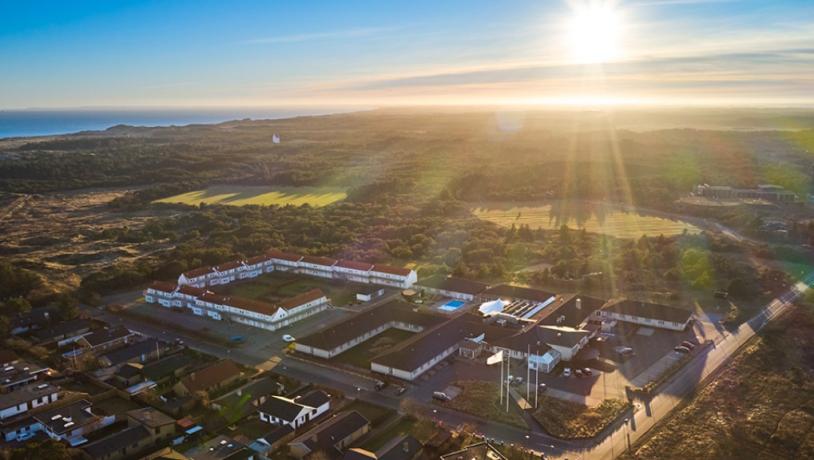
Color Hotel Skagen
As one of the first certified hotels in Northern Jutland, Color Hotel Skagen consistently adheres to Green Key’s criteria. The hotel aims to minimize environmental impact while continually acquiring new knowledge and implementing initiatives to reduce negative environmental effects as much as possible. Both staff and guests are involved in efforts to conserve water and energy, minimize waste, and collectively care for the environment.
